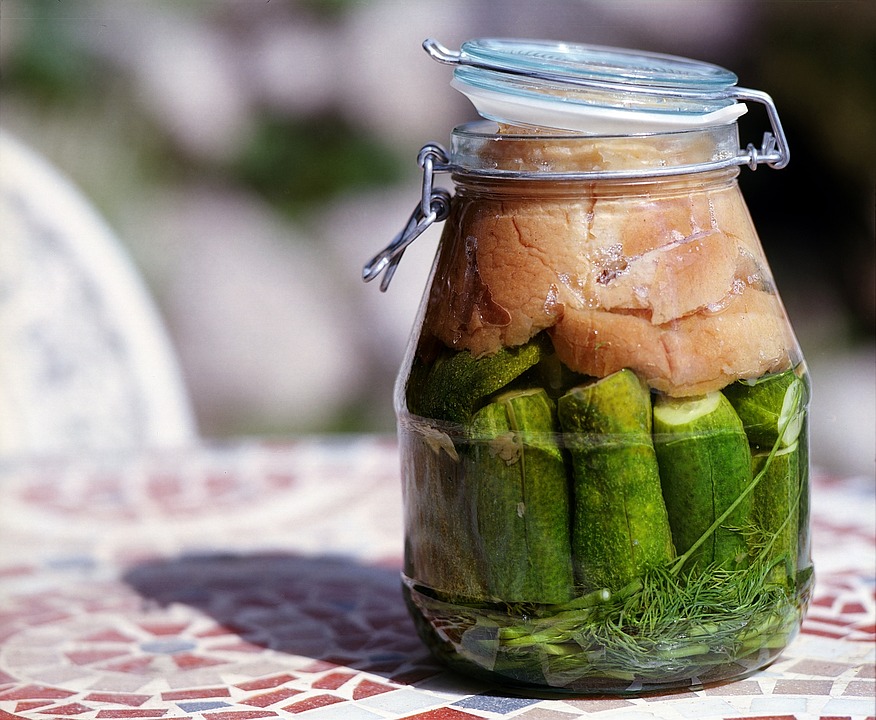[ad_1]
Fermented foods have been gaining popularity in recent years as people become more aware of the health benefits associated with consuming them. From kimchi and sauerkraut to kombucha and kefir, these tangy and probiotic-rich foods are being embraced by health-conscious individuals around the world. This article will explore the rise of fermented foods as a trendy and healthy fad, and the reasons behind their growing popularity.
Why Are Fermented Foods Gaining Popularity?
There are several reasons why fermented foods are becoming increasingly popular:
Health Benefits
Fermented foods are rich in probiotics, which are beneficial bacteria that promote a healthy gut microbiome. A balanced gut microbiome is associated with improved digestion, a strengthened immune system, and even better mental health. Additionally, fermented foods are often easier to digest than their non-fermented counterparts, making them a great option for individuals with digestive issues.
Flavor and Variety
Fermentation adds complexity and depth to the flavor of foods, making them more interesting and enjoyable to eat. From the tangy kick of sauerkraut to the fizzy sweetness of kombucha, fermented foods offer a wide range of tastes and textures that appeal to a broad audience.
DIY Appeal
Many people are drawn to the idea of making their own fermented foods at home. This DIY approach allows individuals to control the ingredients and fermentation process, resulting in a more personalized and cost-effective product.
Sustainability
Fermentation is a traditional food preservation method that can help reduce food waste by extending the shelf life of perishable items. This aligns with the growing sustainable living movement and appeals to those looking to minimize their environmental impact.
The Most Popular Fermented Foods
While there are countless fermented foods enjoyed around the world, some have gained particular prominence in recent years:
Kimchi
This traditional Korean side dish is made from fermented vegetables, typically cabbage and radishes, seasoned with spices like chili, garlic, and ginger. Kimchi is known for its fiery flavor and probiotic richness.
Kombucha
This effervescent, tea-based drink is created through the fermentation of sweetened tea with a symbiotic culture of bacteria and yeast (SCOBY). Kombucha is praised for its refreshing taste and purported health benefits.
Sauerkraut
Sauerkraut is a classic German condiment made from fermented cabbage. It has a tangy, sour flavor and is often used to accompany sausages and other meats or as a topping for hot dogs and sandwiches.
Kefir
Kefir is a fermented milk drink that originated in the Caucasus region. It has a tangy flavor and a creamy consistency, and is rich in probiotics, calcium, and protein.
Conclusion
The rise of fermented foods as a trendy and healthy fad reflects a growing interest in holistic health and wellness. Their unique flavor profiles, health benefits, and sustainable appeal have contributed to their widespread popularity. Whether enjoyed for their gut-loving probiotics or their vibrant taste, fermented foods are undeniably a trend worth embracing.
FAQs
Q: Are all fermented foods good for you?
A: While many fermented foods are rich in probiotics and offer health benefits, it’s essential to consume them in moderation as part of a balanced diet. Some fermented foods, such as certain pickles and soy sauces, may be high in sodium or sugar, so it’s important to be mindful of your intake.
Q: Can I make my own fermented foods at home?
A: Absolutely! There are countless resources and recipes available for making fermented foods at home, from kimchi and sauerkraut to yogurt and kefir. Just be sure to follow proper techniques and hygiene practices to ensure the safety of your homemade ferments.
Q: Are there any fermented foods that should be avoided?
A: For individuals with compromised immune systems or certain health conditions, unpasteurized fermented foods, like some types of kombucha and cheese, may pose a risk of foodborne illness. It’s best to consult with a healthcare professional before consuming these products.
[ad_2]





Comments